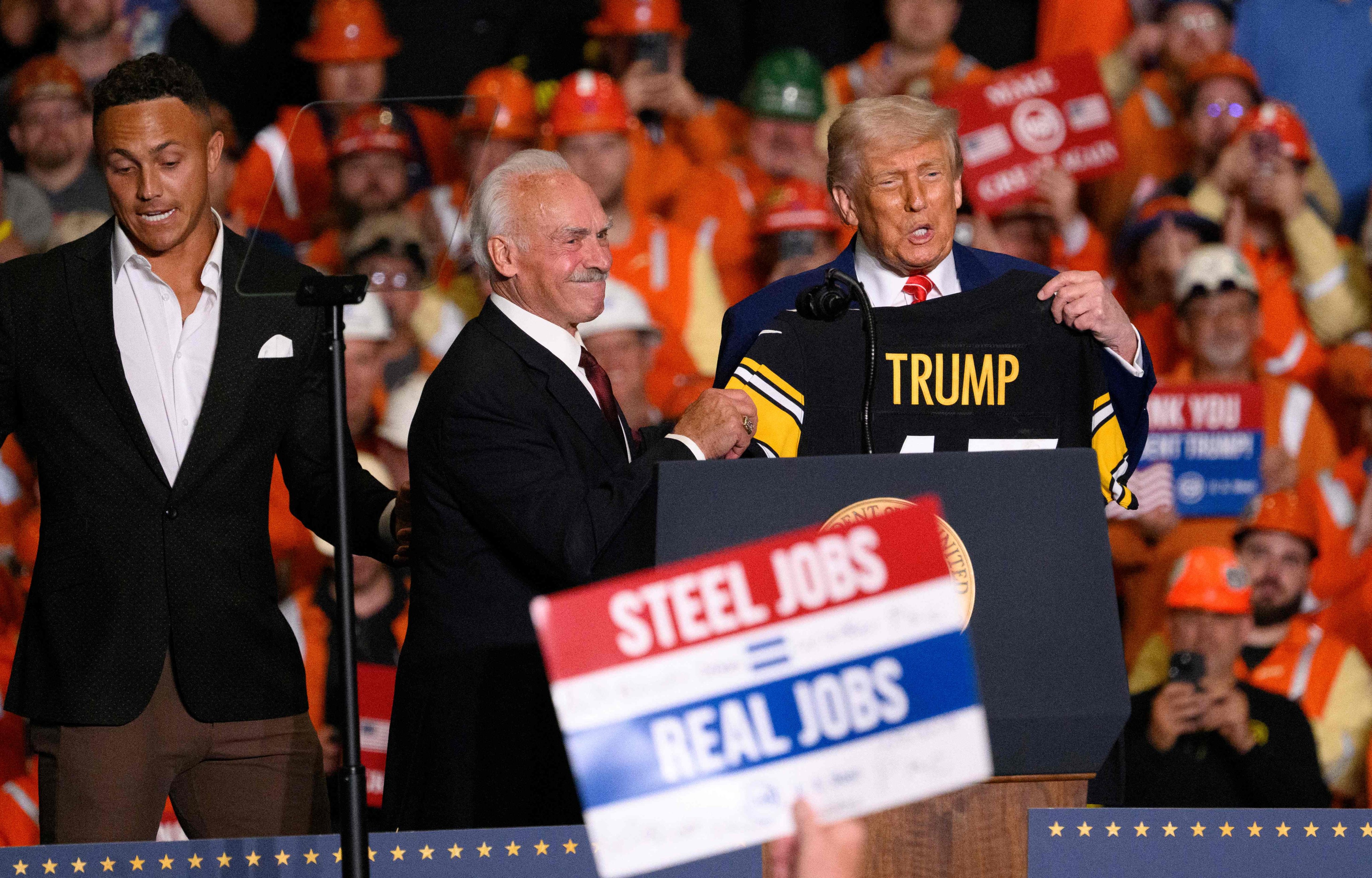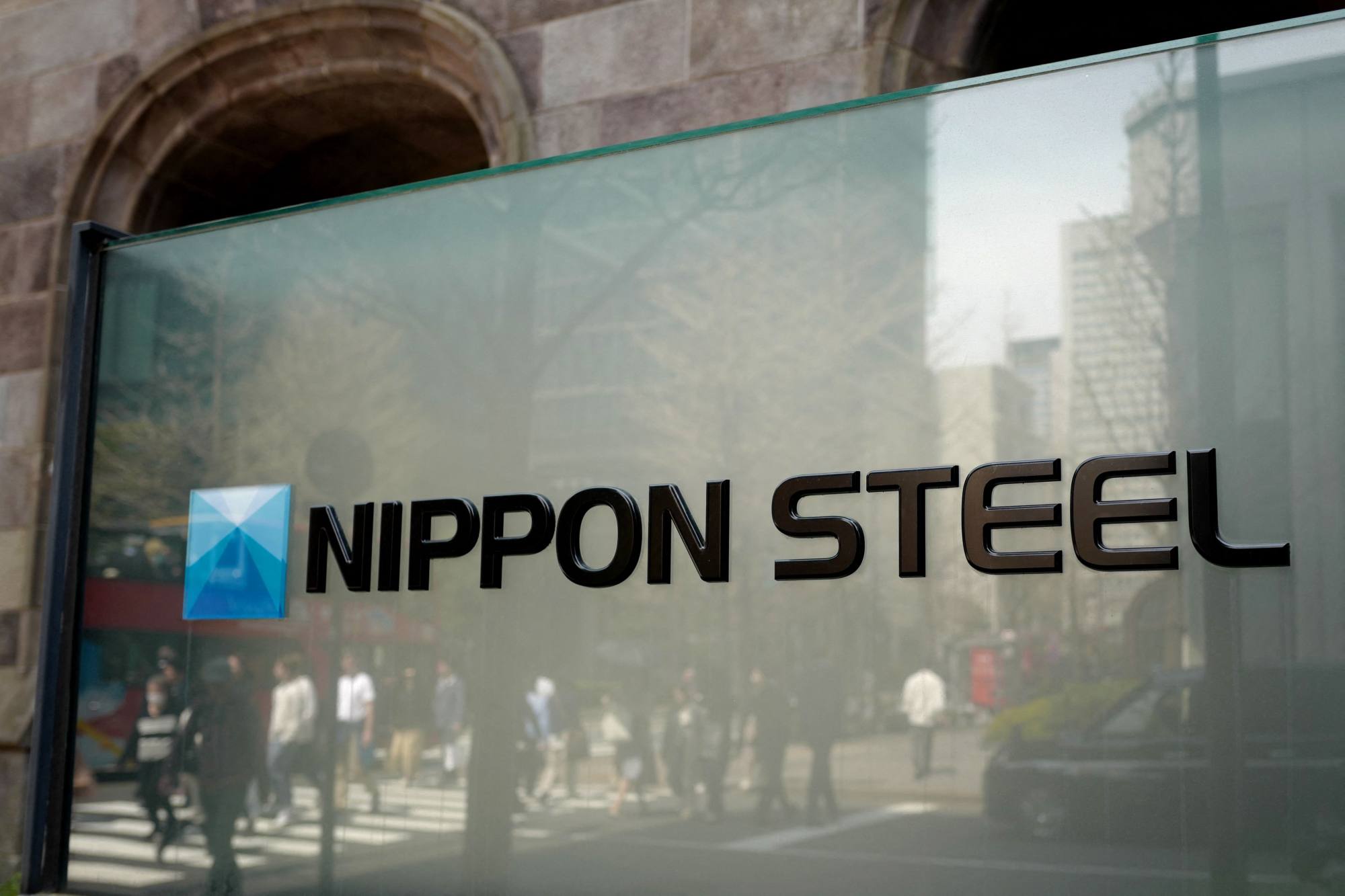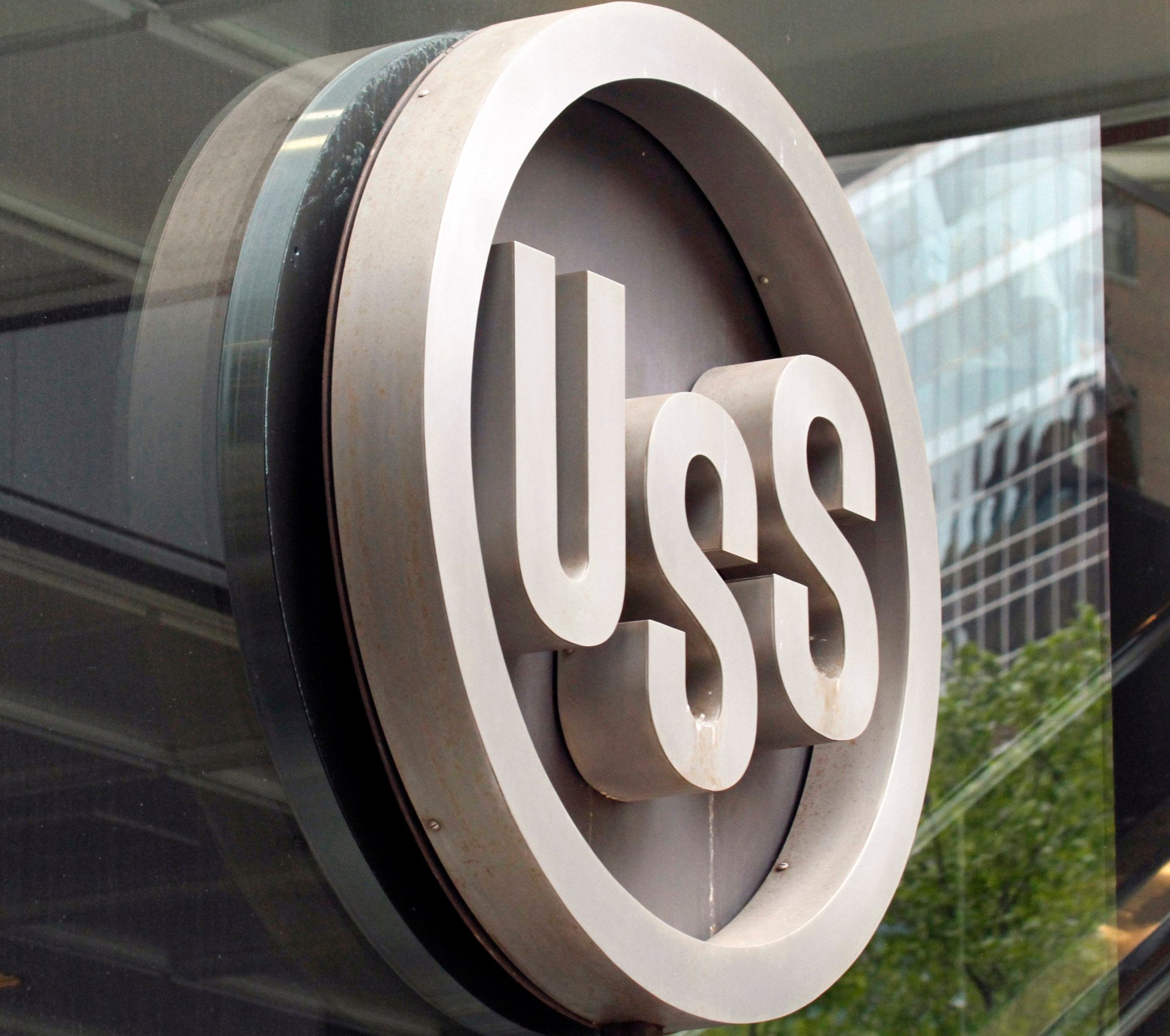Trump to double steel tariffs to 50%, backs Nippon Steel investment in US Steel
Tariff hike, Nippon Steel investments of more than US$20 billion would benefit American steelmaking, US leader claims.

US President Donald Trump on Friday pledged support for investments of more than US$20 billion by Japan’s Nippon Steel into US Steel, and said he would double tariffs on the industrial metal that they produce. He claimed that both moves would strengthen steelmaking in America.
Without exception, Trump said, steel import tariffs would jump to 50 per cent, “which will even further secure the steel industry in the United States”. He later said on his Truth Social platform that the increase would be effective on June 4.
“We are here to celebrate a blockbuster agreement that will ensure this storied American company stays in America,” Trump said during a speech in West Mifflin, Pennsylvania, a manufacturing town long tied to US Steel operations.
Trump said he rejected Nippon Steel’s offer “about four times”, but eventually concluded that the Japanese company “really wants to do the good things” as America will “maintain control” of one of its largest steelmakers.
Trump’s speech followed his announcement last week on his Truth Social account backing the deal, rebranding the once-blocked foreign acquisition as a “planned partnership”.

First announced in late 2023, the proposed acquisition was met with resistance by former president Joe Biden’s administration, which cited national security concerns and moved to block the deal in the final weeks of his term.
Trump also had voiced opposition to during the presidential campaign, and in December as president-elect pledged to “block” the deal once he returned to the White House, posting: “I am totally against the once great and powerful US Steel being bought by a foreign company, in this case Nippon Steel of Japan.”
Since the start of his second term in January, though, his tone has shifted. In February, for example, after meeting with Japanese Prime Minister Shigeru Ishiba, Trump announced that Nippon Steel would invest “heavily” in US Steel “as opposed to own it”.
Trump said in his speech on Friday that Nippon Steel has offered a “US$14 billion commitment to the future of this company”, with another US$7 billion to modernise steel mills, and expand ore mines and build facilities in Indiana, Minnesota, Alabama and Arkansas.
The Japanese company will also invest US$2.2 billion in Mon Valley, where the speech took place, to increase steel productions, along with a US$200 million research and development centre that is currently being built in Pennsylvania.
Nippon Steel has not publicly commented on the terms of a deal, but Senator David McCormick, Republican of Pennsylvania, told CNBC on Tuesday that Trump’s administration is currently allowing the sale to proceed under conditions including an American chief executive, a majority-American board of directors and a “golden share” that gives the government veto power over key corporate decisions.
Nippon Steel representatives have not responded to requests for comment.
The administration has pushed broadly to strengthen the US manufacturing sector, including the use of protectionist tariffs.
The United Steelworkers union, which opposes the acquisition, issued a statement on Wednesday saying its core concerns about Nippon Steel, “a foreign-owned corporation with a documented history of violating US trade laws”, remained “as strong and valid today as ever”.

The union also noted it was unclear how much of Nippon Steel’s investment would finance “genuinely new capital improvements as opposed to routine repair and maintenance”.
In February, the White House reinstated a 25 per cent tariff on steel imports and raised tariffs on aluminium to the same level, citing the need to protect American industries from “unfair trade practices and global excess capacity”. Japan, however, was exempt from the steel tariffs.
But last month, Japan was among the US allies hardest hit by Trump’s “Liberation Day” tariffs, with Japanese imports facing new levies of up to 24 per cent.
After Trump announced a 90-day pause on full tariff enforcement, Japan companies remains subject to a 10 per cent base rate. Japanese auto manufacturers also continue to face a 25 per cent tariff on their vehicles, Japan’s pillar exports.
Despite multiple rounds of negotiations, Tokyo has yet to reach a tariff reduction deal with Washington.
Tokyo has announced it will spend US$6.3 billion in an effort to thwart the economic impact of the Trump tariffs.
It remains unclear whether the Nippon Steel deal would formally be part of the broader US-Japan trade talks.
Ryosei Akazawa, Japan’s top trade negotiator, visited Washington again this week for a fourth round of talks.
White House Press Secretary Karoline Leavitt said that Trump had “a very good call and a good discussion” with Ishiba on Thursday, though she did not disclose the topics discussed. Ishiba told reporters in Tokyo that the conversation was friendly.
The US Steel deal has become a symbol for the Trump administration, aligning closely with its agenda to revitalise American manufacturing and boost working-class employment. The company is based in Pennsylvania, a key swing state that played a decisive role in Trump’s victories in both 2016 and 2024.
At the same time, China’s outsize role in global steel production – accounting for more than half the world’s output – remains a core target of US trade policy. The steel tariffs imposed in February were partly aimed at closing loopholes that previously allowed Chinese exports to avoid US duties.
Trump has repeatedly accused Beijing of overcapacity and dumping since his first administration, vowing to prompt more countermeasures in his term.
He took a swipe at China trade practices in his speech on Friday, claiming that “they were dumping steel, as you know, from China and from all over the world”.